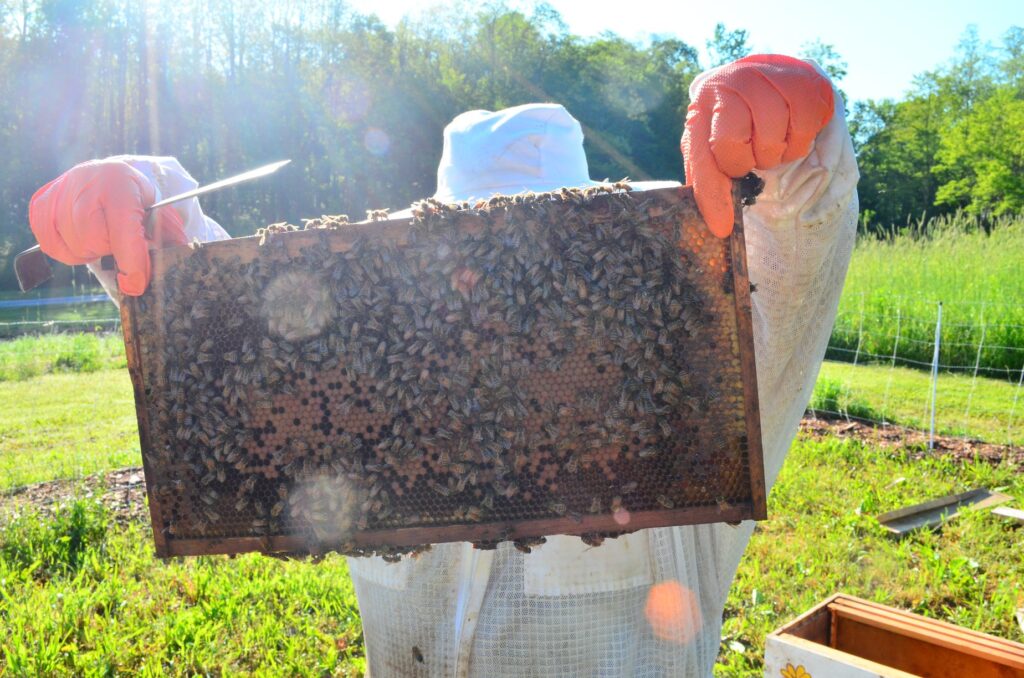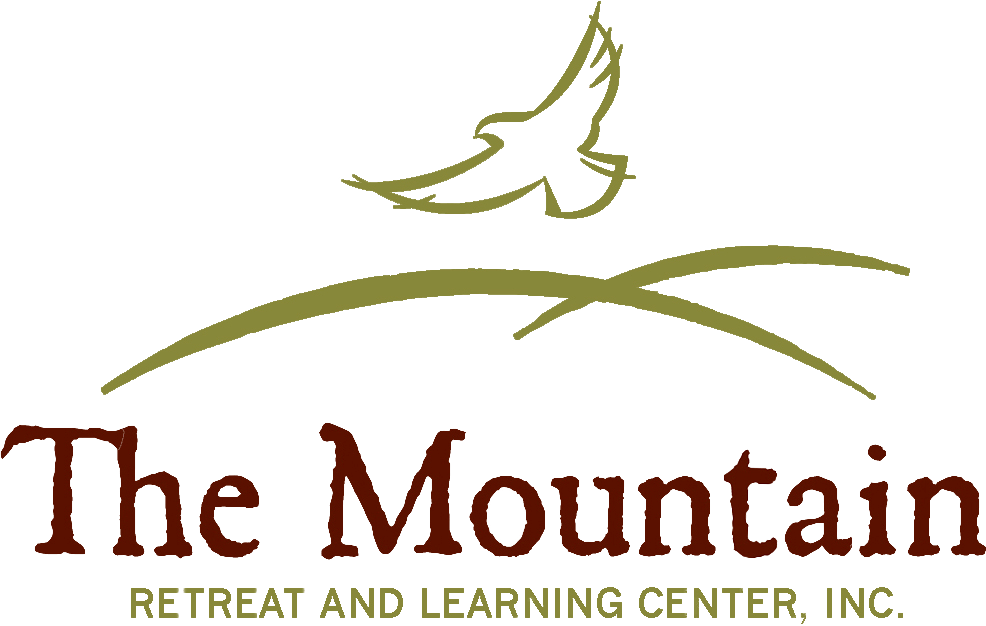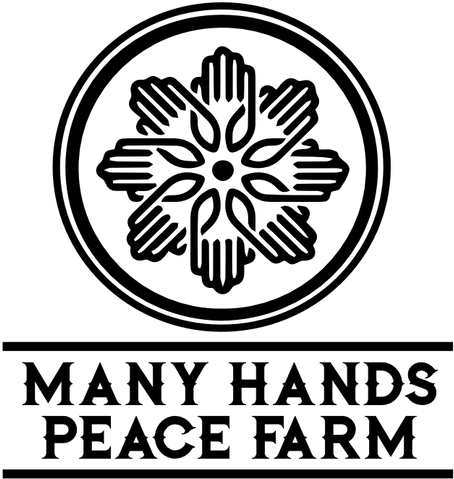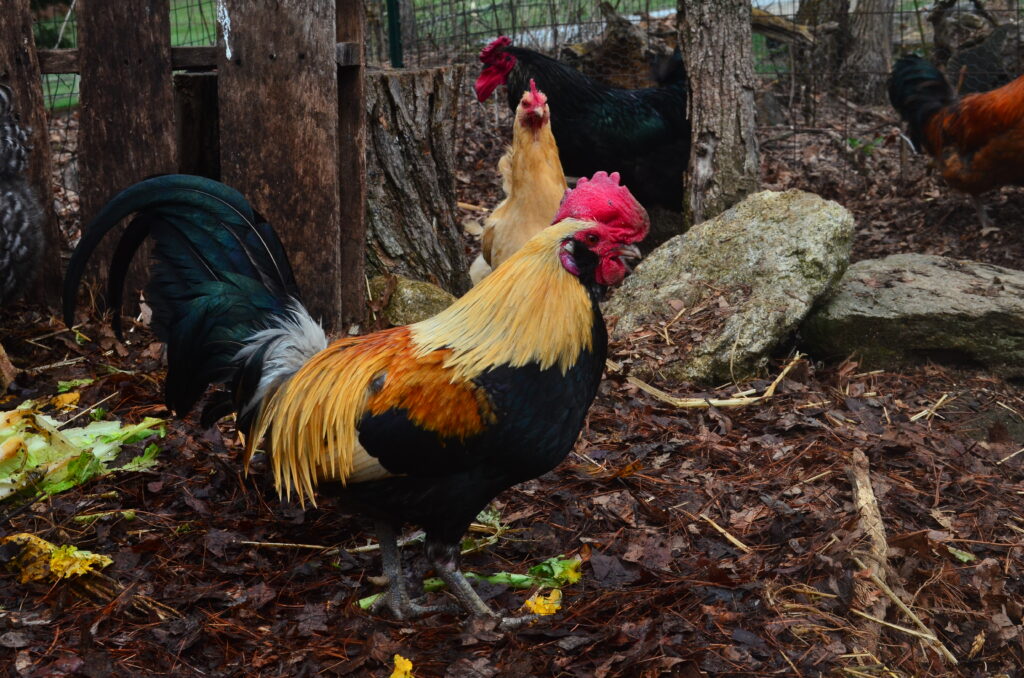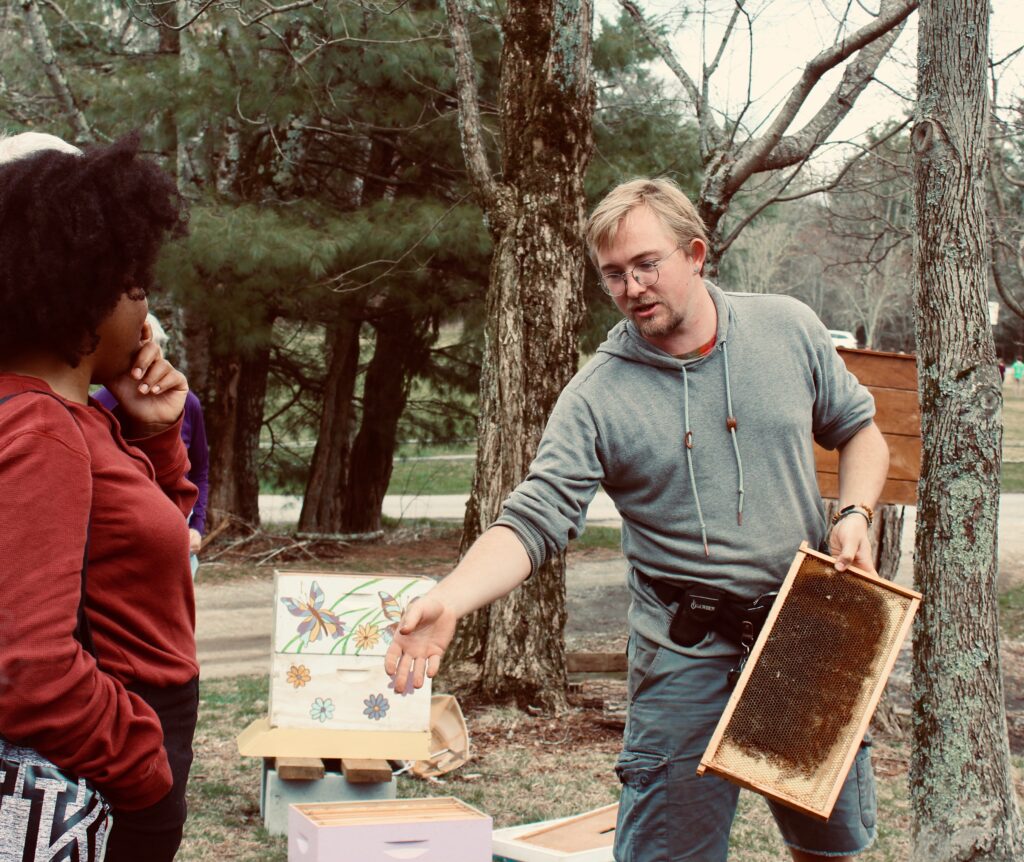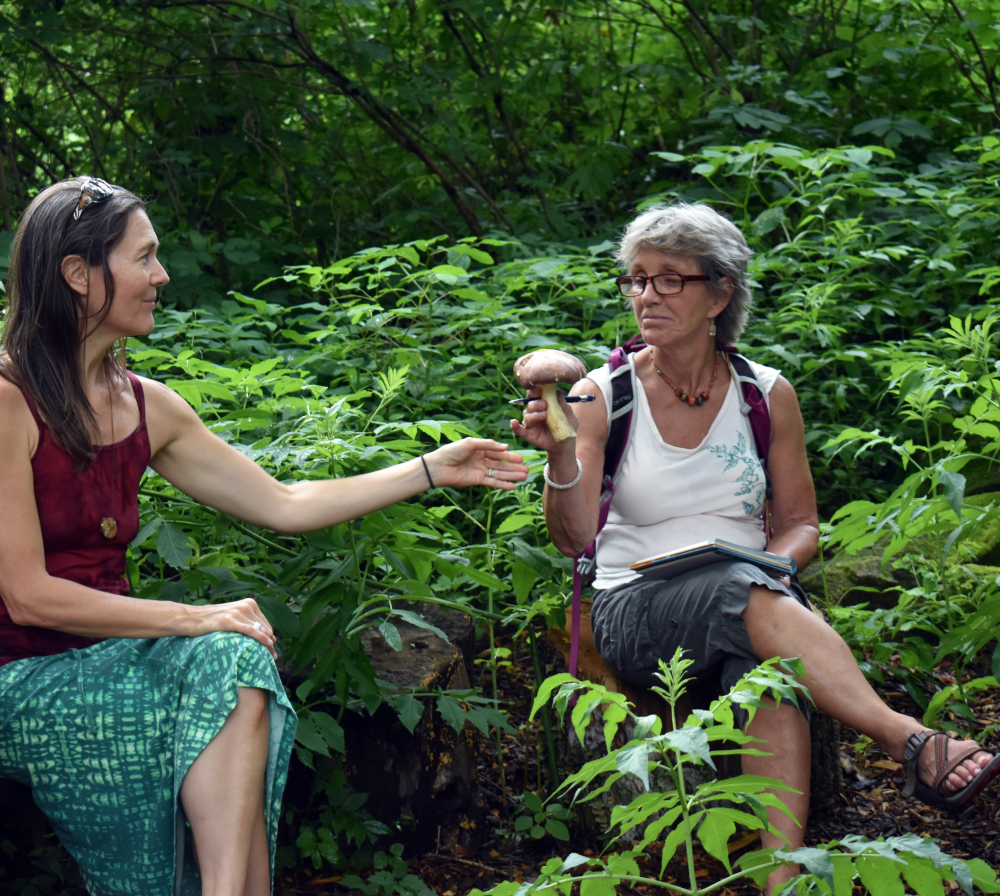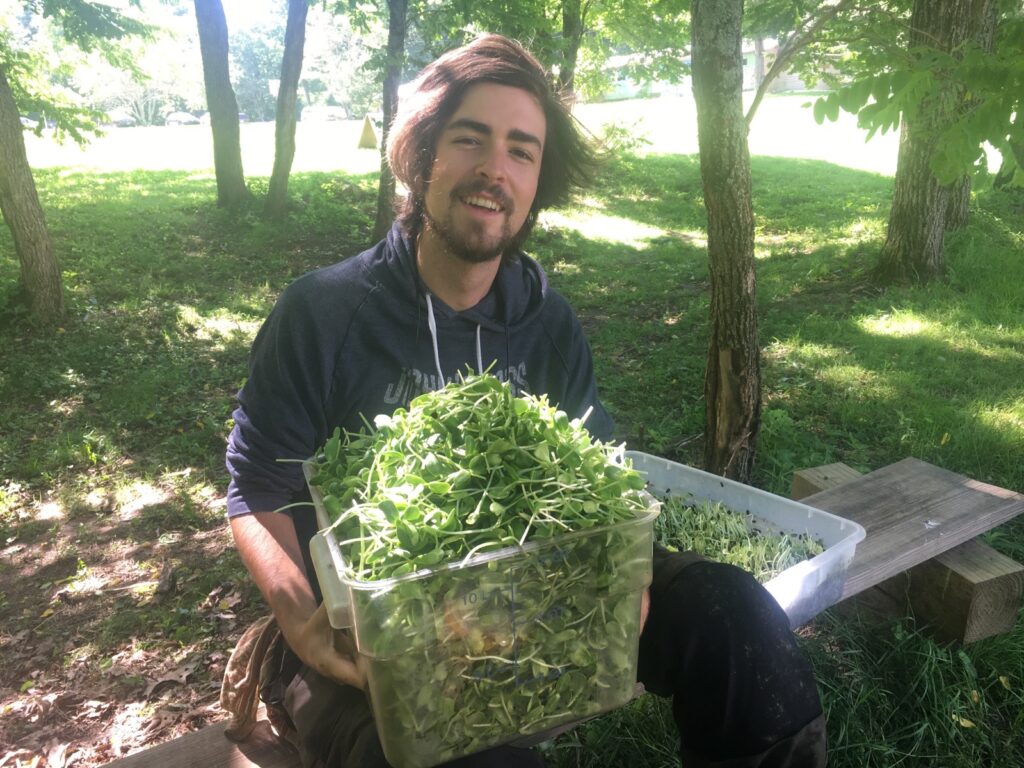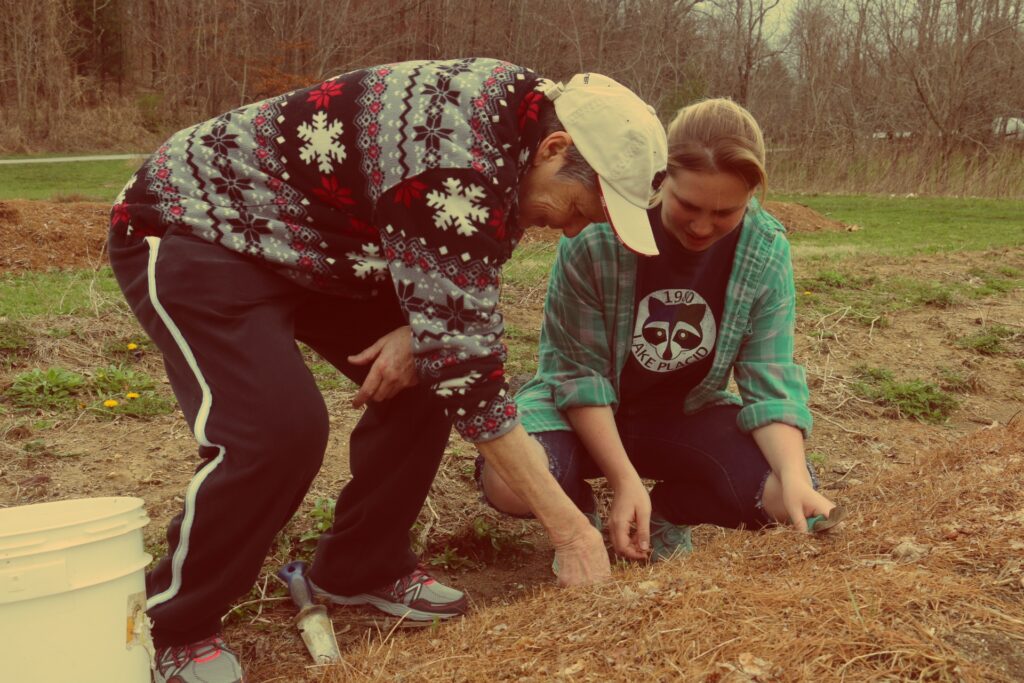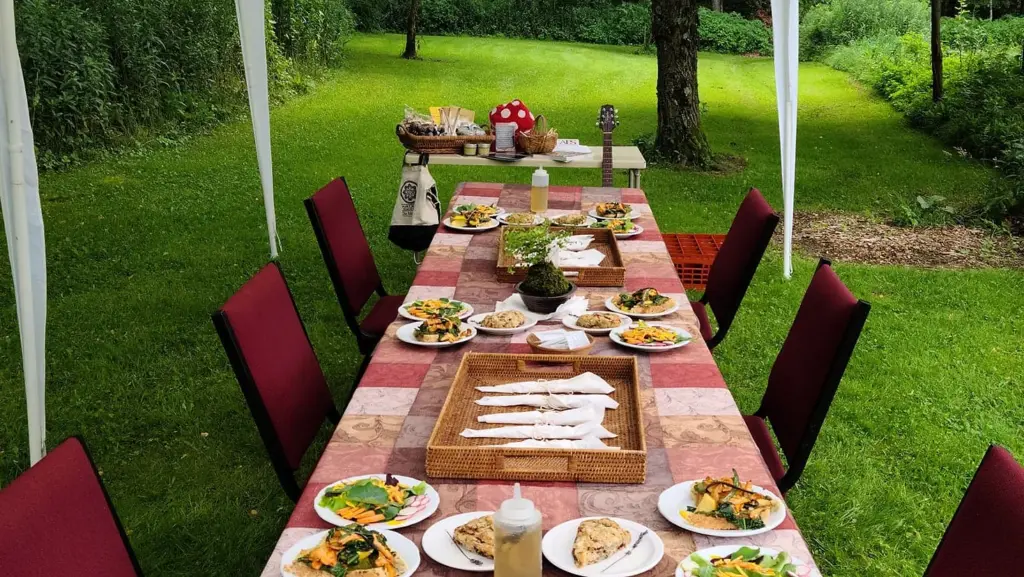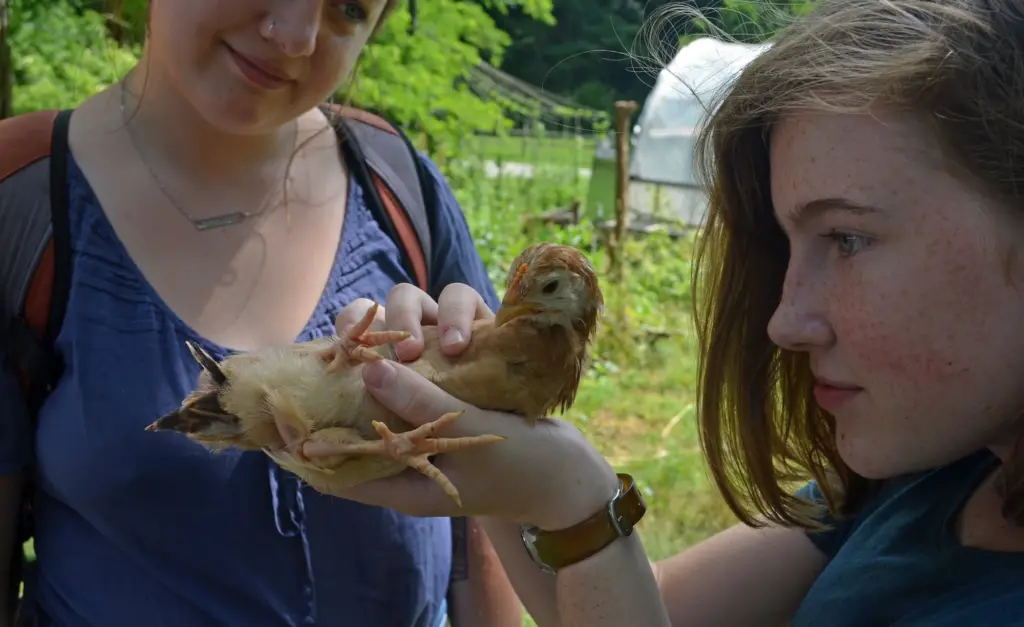Our Mission
The Many Hands Peace Farm is an educational farm dedicated to teaching our community and The Mountain Retreat & Learning Center’s guests about the concepts and techniques of regenerative agriculture.
The Many Hands Peace Farm contributes to The Mountain’s overall environmental sustainability, producing food, mushrooms, flowers, and herbs for use in our kitchen and dining hall. The Farm sells produce at Highlands Farmers’ Market and Cashiers Farmers’ Market. This generates modest revenue, raises visibility for the Farm and The Mountain, and provides our staff direct marketing and sales experience in addition to their farm training. Farm staff regularly host farm tours, foraging and wild edibles tours, workshops, and other educational programs.
Our Methods
We use no synthetic fertilizers, herbicides, pesticides, etc. Most of the work on the farm is done with hand tools, though we occasionally use a walk-behind tiller or tractor. We compost food waste from the kitchen and dining hall to reduce our waste stream and utilize nutrients and organic matter that would otherwise go to the landfill. Many Hands Peace Farm aspires to make a lasting impact on The Mountain, its overall sustainability, and our guests through educational programming, improving the soil and infrastructure of cultivated areas, and planting perennial food crops.
How It Began
In 2009, Brian Gifford and a small group of Mountain staff had a vision of sustainable agriculture at The Mountain. This vision became the Many Hands Peace Farm. This program has evolved to provide environmental and agricultural education for guests, cultivate environmental awareness and sustainability, and produce locally grown, organic food for guests attending Mountain programs. As well as local communities through the Cashiers and Highlands Farmers Markets. Through determination and hard work, the Many Hands Peace Farm began its first season in 2010. True to its namesake, many have contributed to seeing this vision of regenerative agriculture in practice. Learn more about our commitment to soil, sustainability, and stewardship below.
Farm Camp
We are excited to announce our 5th year of farm camp. This year it will be an immersive, place-based educational experience focused on connecting practical, kinesthetic learning to broader issues and concepts. Kids will learn about herbalism, mushroom cultivation, foraging/wildcrafting, soil ecology, animal husbandry, basic horticulture, composting & waste upcycling. This camp will engage creative minds with hands-on learning while fostering holistic thinking & problem-solving, appreciation of the natural world and human roles within nature, food consciousness, interdependence, and healing the land as healing ourselves.
Food Forest
Many Hands Peace Farm is in the process of establishing a 1-acre Food Forest in the Black Locust grove at the base of The Mountain.
A food forest is an intentionally managed space that can contain trees, shrubs, vines, low-lying plants, and mushrooms planted in symbiotic communities, and all together produce a long-lasting, abundant harvest for humans and wildlife.
Thanks to a group of wonderful donors, we raised over $5,000 for this project on Faithify.org. We’ve used some of the money to buy over 200 fruit or nut-producing trees and bushes, many of which were purchased from nearby nurseries that specialize in native and naturalized food-producing species. In the fall of 2017, we planted these new acquisitions into a temporary nursery adjacent to the food forest, to allow them to naturalize to our climate for a full year while we prepared the Food Forest area. During the summer and fall of 2018, we rotated chickens and turkeys through the space in mobile coops, letting them do soil-prepping work for us by trampling and scratching the weeds/plants and leaving us open soil to scatter cover-crop seed and to introduce our perennials. We are happy to say that, with great thanks to all of our volunteer help, we established all of the plants from 2017 in our Food Forest.
By establishing the Food Forest, we create a demonstration site for those interested in homesteading and regenerative agriculture, This space will also be used as a unique outdoor learning space for MountainCamp activities and other programming. The Food Forest is an attractive place for guests, campers, and visitors to gather for peaceful reflection, wedding receptions, forest-to-table dinners, or other social events.
The space provides habitat and forage for a wide range of wildlife, including bees, butterflies, deer, rabbits, birds, toads, and thousands of soil microorganisms. If we provide these critters with ample food in the Food Forest, they’re more likely to coexist with our field crops rather than destroy them!
In addition, the Food Forest contributes to the farm’s financial fortitude. Fruits, nuts, and other products derived from the Food Forest will be processed into products to be sold at market. Many of these products, such as greens, herbs, nuts, berries, and fruits will be supplied to The Mountain’s kitchen for preparing delicious meals and unique desserts for our guests that are locally sourced.
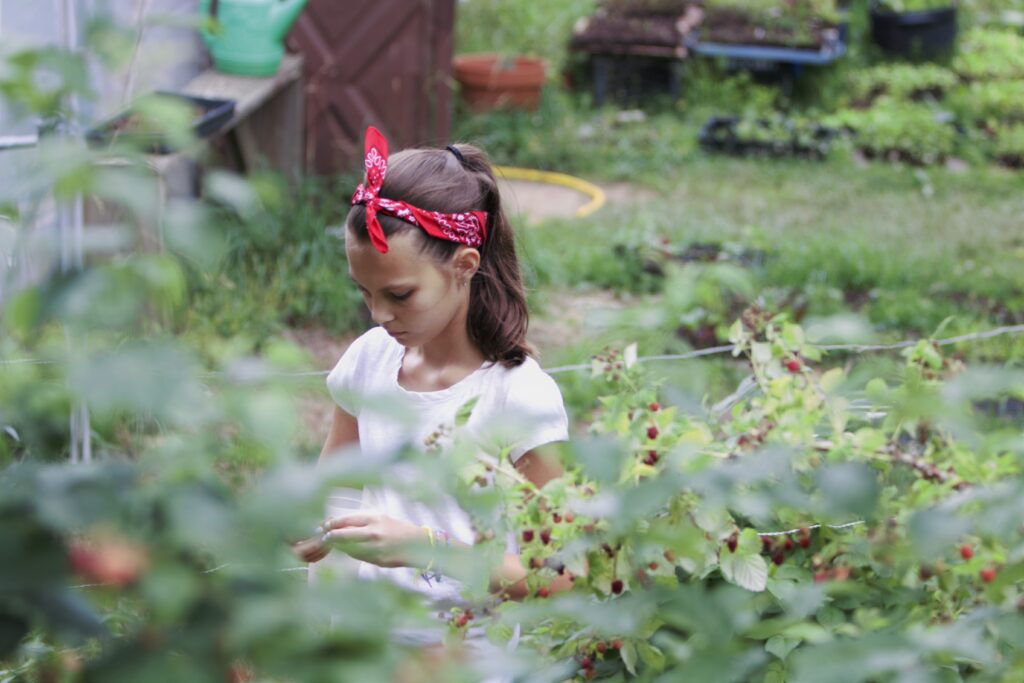
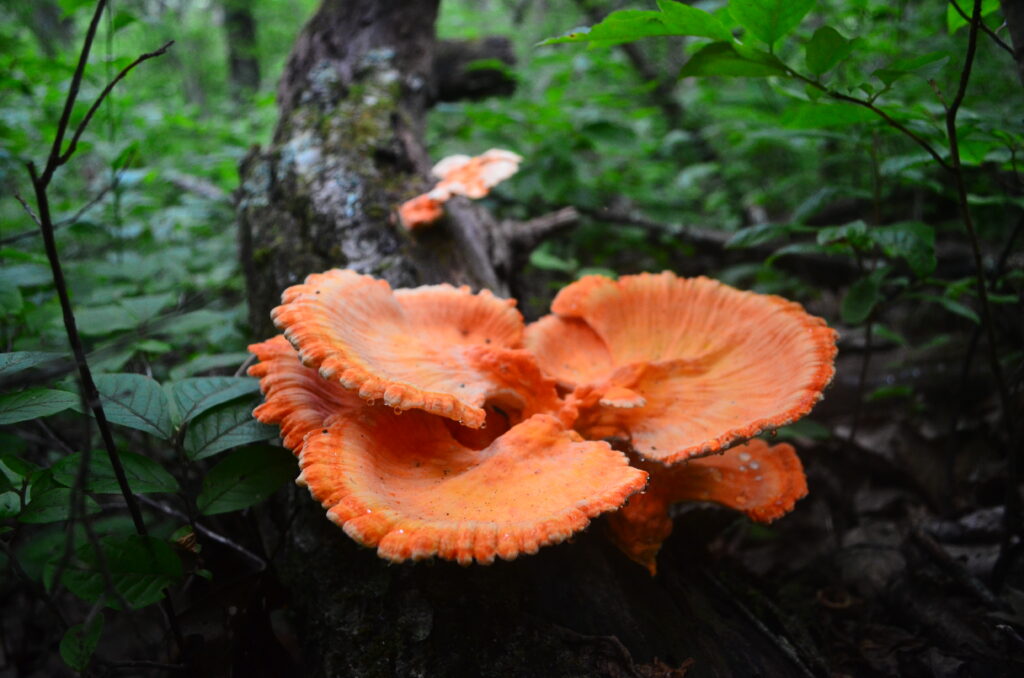
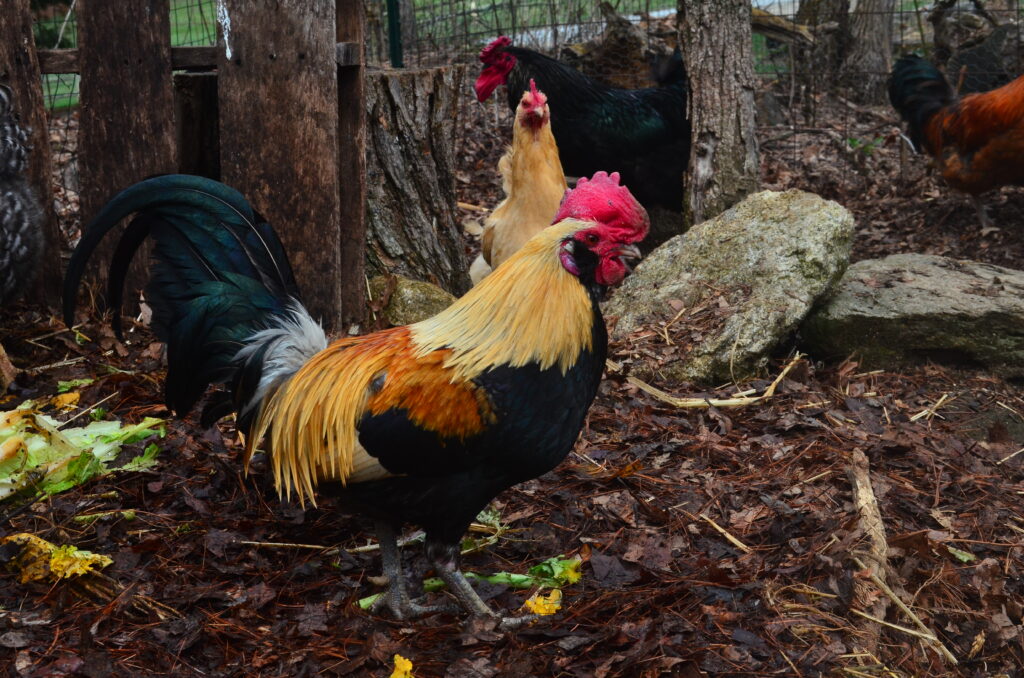
Poultry
We have a happy flock of around 50 chickens both young and old! Currently, we have Buff Orpingtons, Black Australorps, Plymouth Barred Rocks, Americaunas, Turken Naked Necks, Golden Comets, Black Star, Silkies, White Faced Black Spanish and a few mixed breed Chicks.
We also have a mixed flock of around 30 ducks. (Khaki Campbell, Rouen, Cayuga, Muscovy, Swedish Blue & two Indian Runners) Each year we hatch some of our own eggs to keep our flock fresh and give us chicks for Farm fest.
Our birds have access to pasture every day and freely intermingle with one another. Their coops are managed with the deep litter method. This consists of regularly adding fresh layers of bedding. This helps us to retain nutrients for our composting, gives the chickens something to scratch through, and helps to retain warmth in our cold season.
We supplement their foraged diets with Organic Chicken Feed and kitchen scraps. This helps us with waste management as well as creating manure.
Our eggs go to the Highlands Farmers Market, Cashiers Farmers Market, to our kitchen, and are also available to our guests.
Come visit our happy poultry!
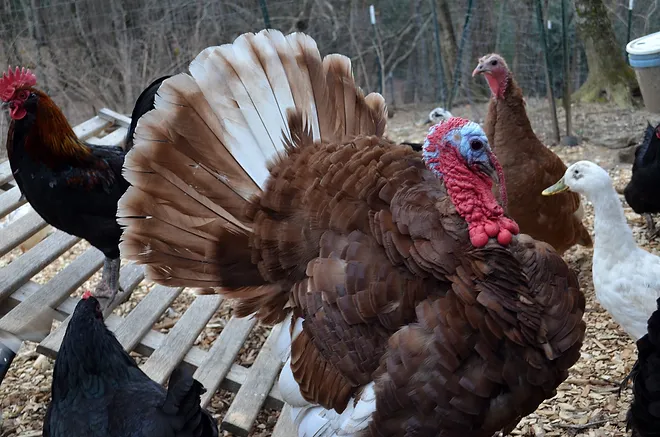
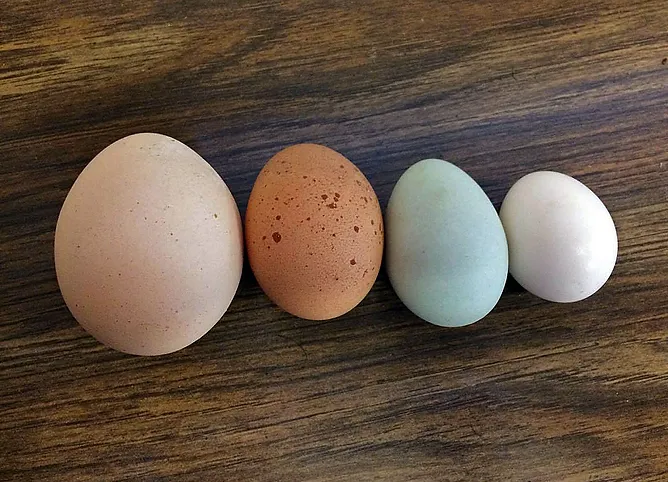
What’s Growing on the Farm?
Though we have a short growing season due to our elevation, we usually have produce available late May – mid October.
Here is what is growing in the garden this year:
- Greenhouse: This comming year, Thanks to Highland Mountain Findings, we will be installing a brand new permanent structure with climate control abilities to expand our growing season. We start all our flats in the greenhouse before we transplant them into the field. With this new facility we will add months to our growing season, as well as a secure place for Microgreens.
- Field: potatoes, beets, chard, radishes, pole beans, corn, pumpkins, squash, cucumbers, zucchini, collards, kale, broccoli, lettuce, carrots, cut flowers, turnips, garlic, sunchokes.
- Herb Garden: thyme, basil, dill, chives, rosemary, mint, holy basil.
- Flower Garden: Black-eyed Susan, Bee Balm, Sunflowers, Yarrow, Gaillardia, Mint, Echinacea, Lupins, Sweet williams, Iris, Peonies, and Poppys.
- Hoop House: Our Hoop House has been moved to our field and will provide a warmer and protected place to grow heat loving Nightshades. This will include tomatoes, eggplants and peppers both sweet and spicey.
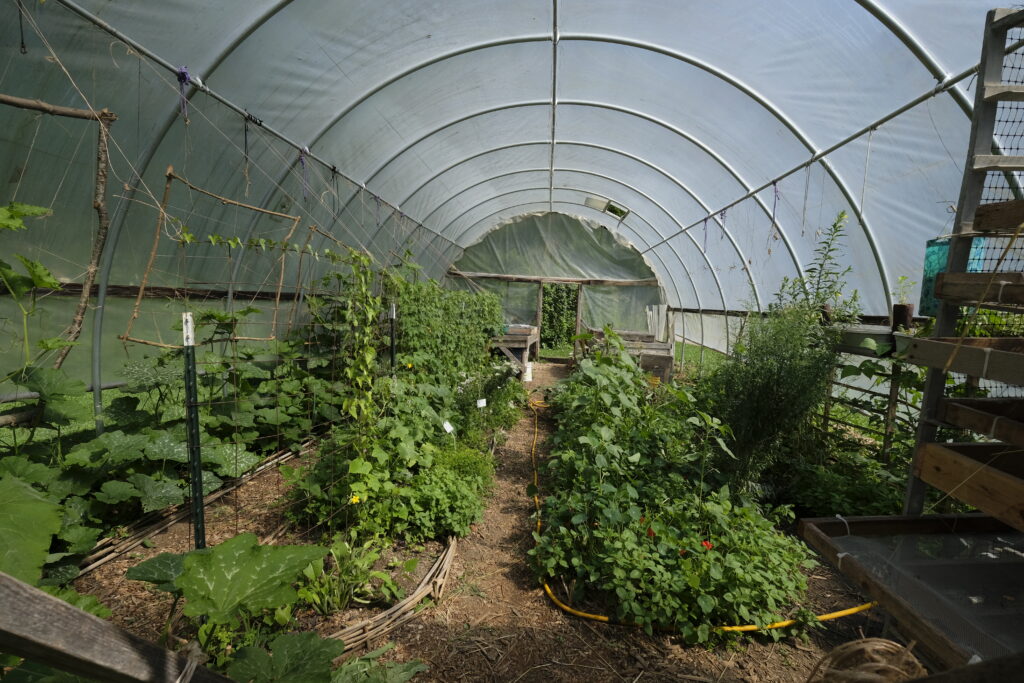
Bees
As part of our pollinator habitat development efforts, supported by our 2017 Feed a Bee grant, we have established an array of flowers to attract pollinators to the Food Forest. We are especially excited about planting Honey Berry, which flowers early and is a premium for bees and other pollinators. We are pleased that the Macon County Community Foundation has generously awarded funds for expanding our educational programs about pollinators and pollinator ecosystems.
Our Apiary Currently has 3 hives.
These bees were brought The Mountain in 2022 and this will be their first winter here at the mountain. With any luck next year we will be able to harvest our own Mountain Honey.
